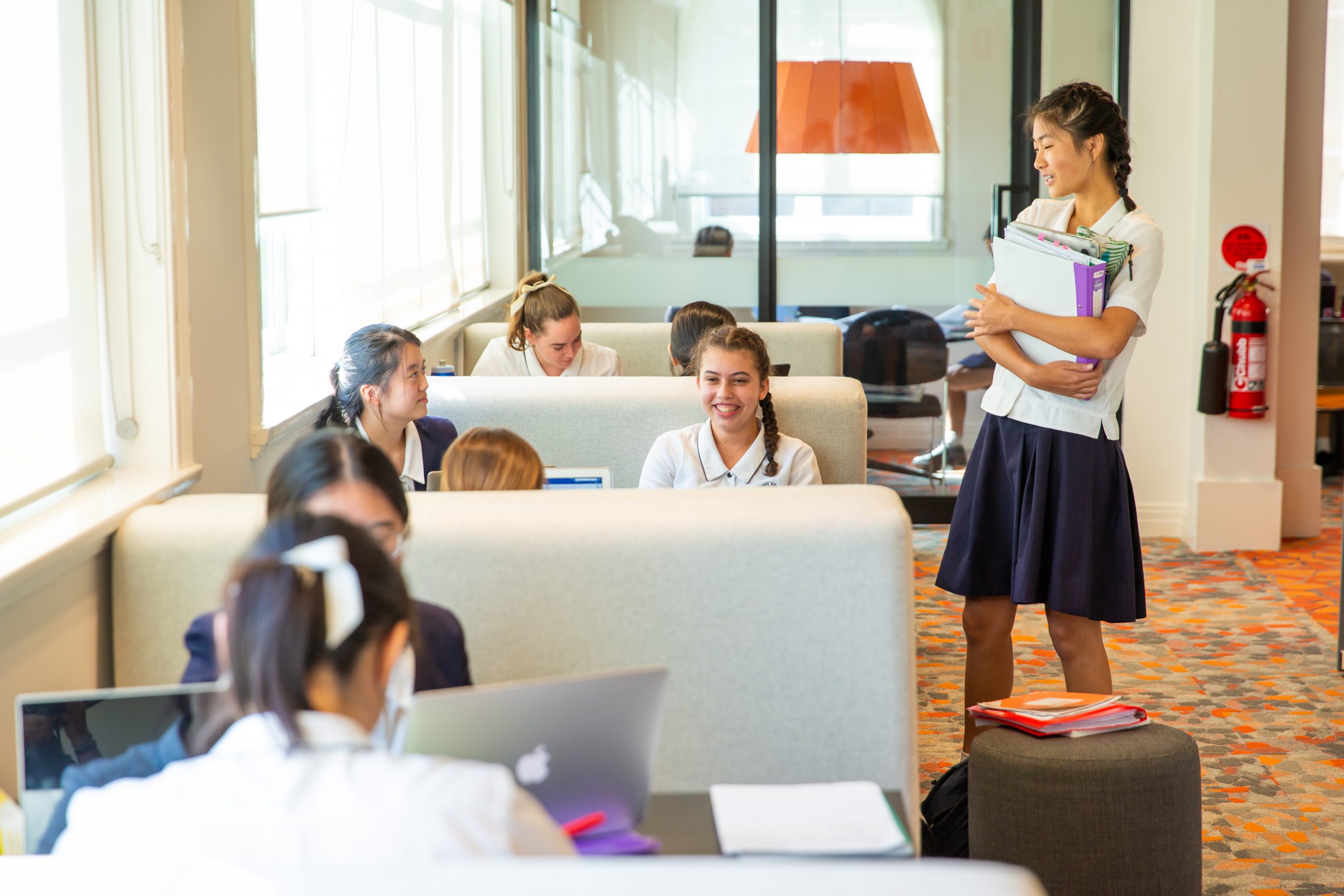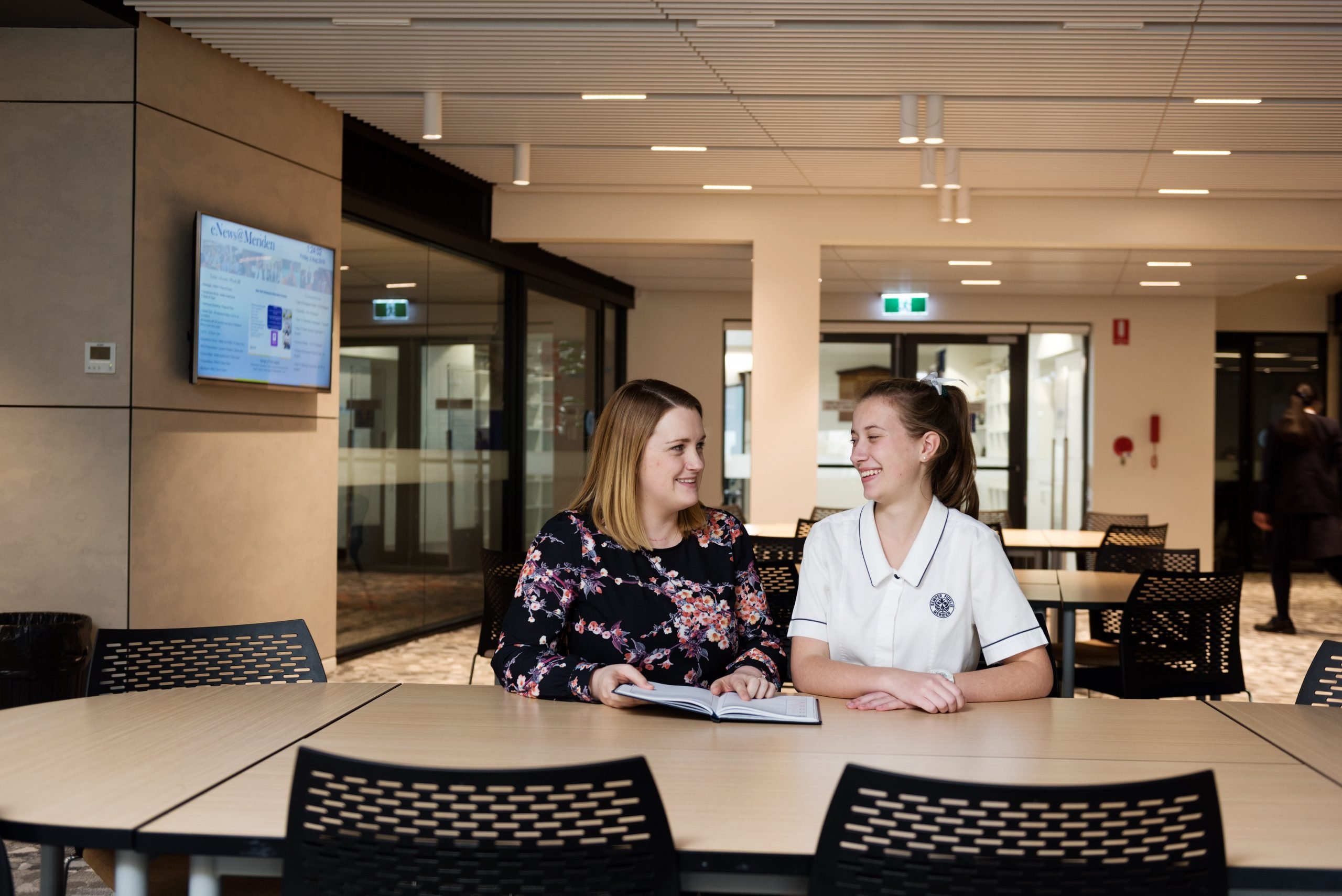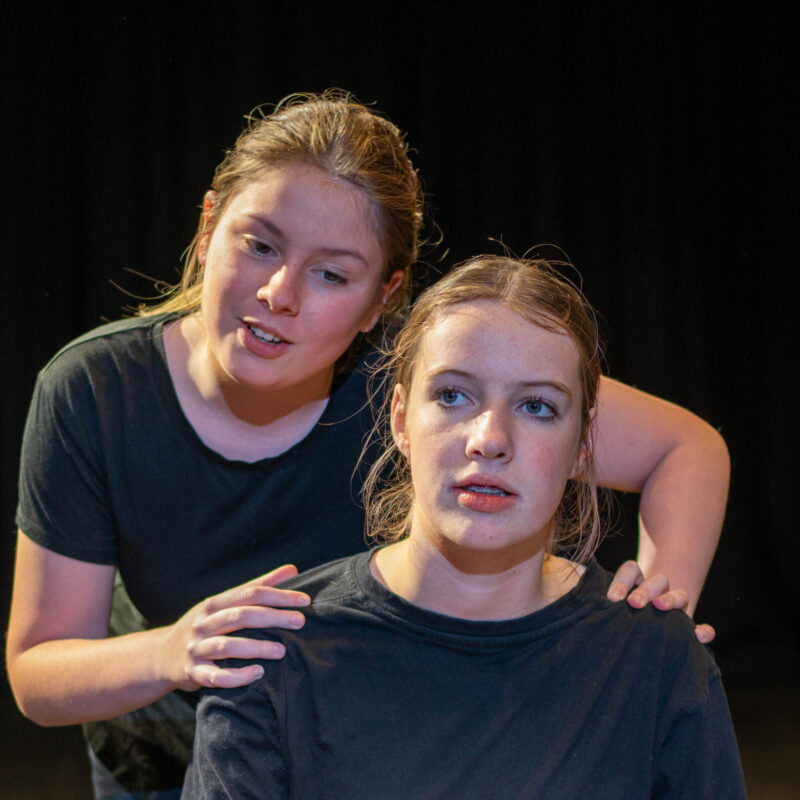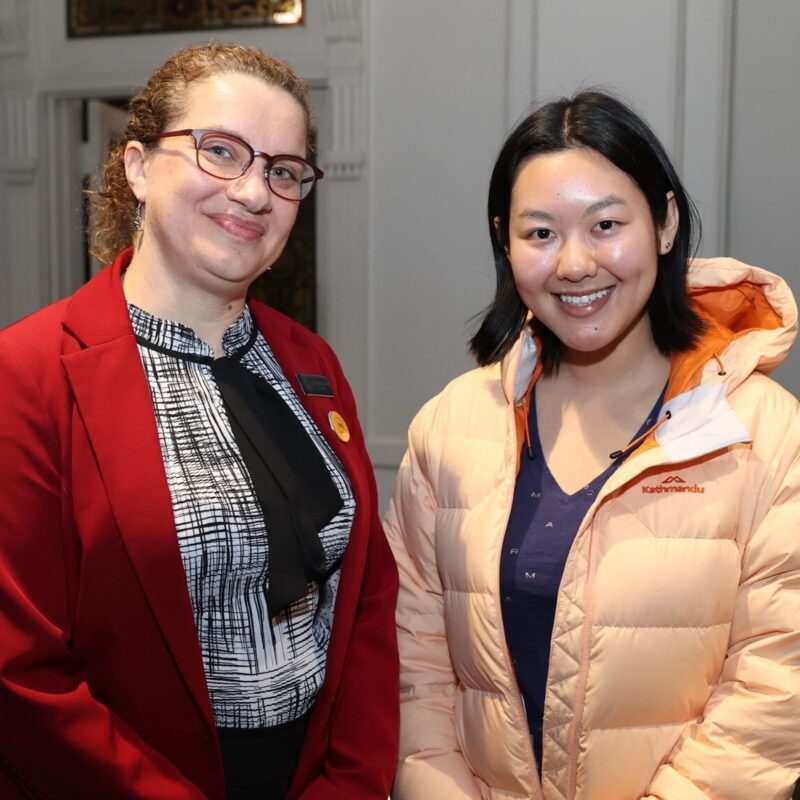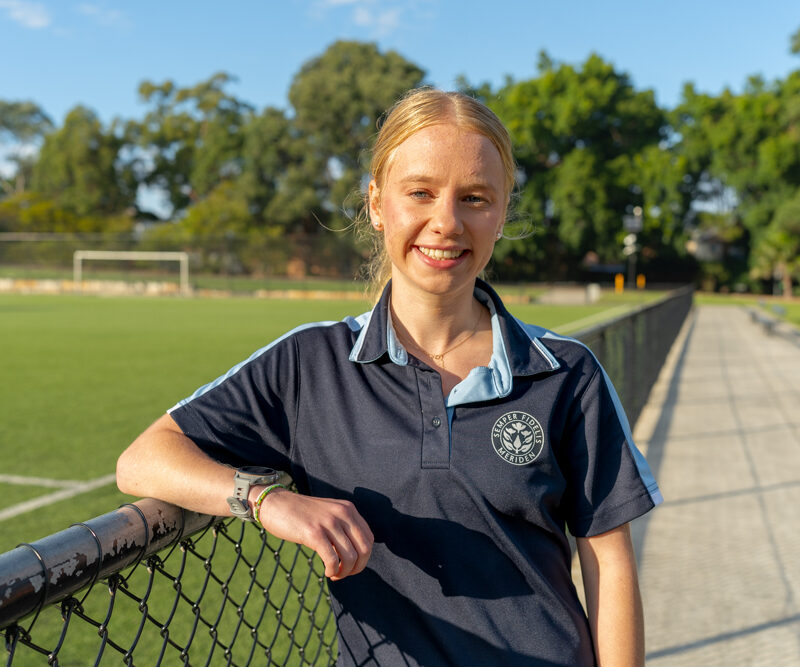Hudson Library and Research Centre is more than just a home for books. The newly-renovated space incorporates a series of innovative technologies and programs designed to encourage inquisitiveness, critical thinking and literary engagement amongst students.
The library, which is now split into two distinct spaces, is separated by The Foundry, an-open plan area where STEM classes, like robotics and coding, take place. The design is intended to inspire cross-curricular connections and help students think of the library as a place of working knowledge that should be applied and tested at every opportunity.
Mrs Christine Kenny, Head of Teaching and Learning, said the re-opening of the Hudson Library and Research Centre was not only a refurbishment, but a recommissioning of the building’s function.
“The library is now a learning commons – a place that provides a space for quiet individual work but also for collaboration,’ she said.
“Today, we expect students to wrestle with complex problems and work collaboratively to find solutions. Collaboration in Hudson Library and Research Centre is facilitated by the flexibility of the space – the large tables, the booths, the classrooms that surround the space during class time but transform into meeting places at other times. By giving the girls space in which to work creatively and critically, we are providing them with the room to hone their independent thinking skills, arguably one of the most important attributes for thriving in the twenty-first century.”
As part of the renovation, the organisation of the library’s non-fiction section has been overhauled in a decision that leaves behind the Dewey decimal system.
“The library’s entire non-fiction collection has been re-catalogued based on the how it fits into the curriculum, which makes the process of finding appropriate resources much easier for students and teachers,” Mrs Kenny said.
“The genre classification system was developed in consultation with staff and students and the fiction section will soon get the same treatment, with the aim of encouraging students to read widely through a more user-friendly cataloguing experience. The library staff are always thinking about how to make printed resources work as hard as digital ones and how they can best serve the curricular needs of students.”
Mrs Priscilla Curran, Coordinator of Learning Link – Research and Critical Thinking, said the Hudson Library and Research Centre is an essential part of a student’s academic development and support network.
“The library is a portal through which students are connected to quality information, from anywhere, at any time, through their laptops,” Mrs Curran said.
“It is also a living space that engages girls in opportunities that provide academic support and encourage creative and critical thinking.”
Part of this support is delivered through the school’s newly appointed Research Fellow, Dr Ann Goeth, whose role is to help equip students with the skills required to navigate an information-rich world.
Dr Goeth is a science teacher and has previously worked as a researcher at universities and for the NSW Government in the fields of biology and ecology. Students can book a one-to-one research session with Dr Goeth and she supports each girl’s individual needs in relation to her schoolwork and assignments. Dr Goeth aims to develop students as independent researchers so they have the skills they need to seek, interrogate and utilise information for their schoolwork and later, at university.
Alongside encouraging strong digital literacy skills, Meriden continues to instil in its students a love for the printed word. Helping to bring books to young people is Miss Katie Bowie, Coordinator of Learning Link – Literary Engagement.
“We want our students to know that reading is fundamental not only to academic success, but also to becoming empathetic, imaginative thinkers,” Miss Bowie said.
“One of the ways in which the Hudson Library and Research Centre encourages literary engagement is through the position of the new fiction section which forms a central hub that is surrounded by classrooms. The collection is visible and prominent, so girls can browse books as they enter and exit their classrooms, making literature a part of their daily interactions.”
“Additionally, by rotating book displays and connecting them with world and school events, we signal to students that fiction is dynamic and reflective of the world in which they live,” she said.
The new library has ample space to host a range of cocurricular groups that further integrate reading and writing as everyday activities. Junior and Senior Writing Groups take place weekly in the classrooms that branch out of the fiction section, highlighting the link between good writing and wide reading. Led by Miss Bowie, the groups encourage the girls to write for pleasure and offer them the opportunity to see their work in print in the Meriden student publication, Equilibrium.
A growing number of students are joining the Library Committee, a body that plays a role in many fundamental aspects of the library, from reviewing new purchases to creating book displays and designing strategies to promote its members’ favourite novels and genres. The group’s membership is perhaps the most salient reminder of how proud students are of Hudson Library and Research Centre and how they consider themselves the custodians of the knowledge it offers.
